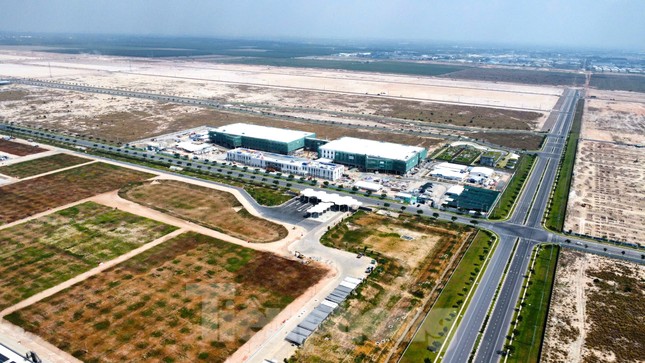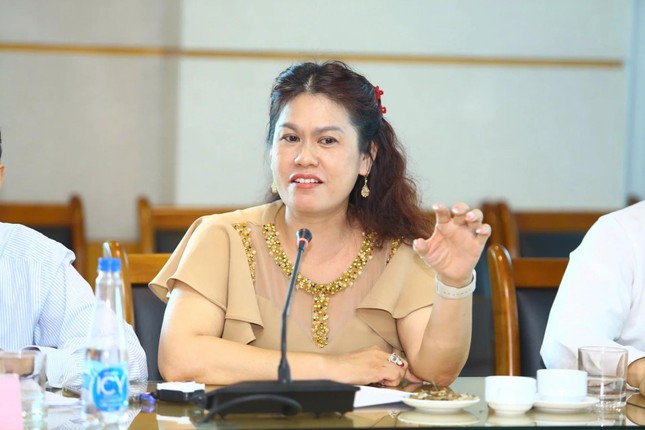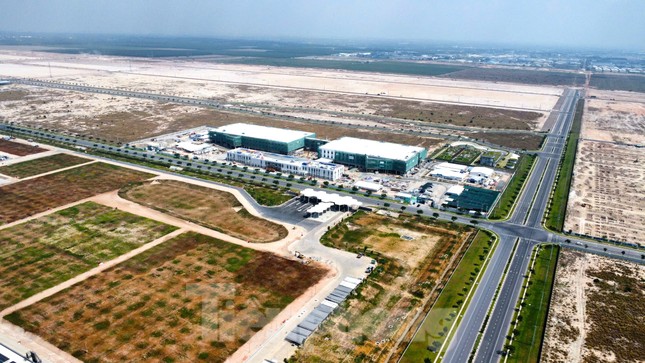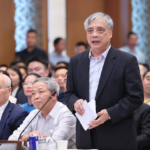“Hunger” for Capital, Thirst for Land
At the forum “Resolution 68: Forging a Golden Era for Agricultural Enterprises” organized by the Rural Today/Dan Viet newspaper on May 28, Mr. Do Quang Hung, First Vice President of Vietnam-Japan Industrial Park (Haiphong), expressed that there is a need for early guidance to put the resolution into practice, especially in supporting businesses in accessing land.
Following Resolution 68, enterprises expect that industrial parks and clusters will allocate 20 hectares or 20% of the land (similar to residential areas that must set aside social housing land); and reduce land rent by 30% for five years.

Private enterprises long for access to land and production premises.
According to Mr. Hung, enterprises are very excited about the land liberalization policy and look forward to detailed guidance soon. “Many small and medium-sized private enterprises do not have adequate access to land, neither in industrial parks nor even in clusters. Land prices in industrial parks have doubled in the past five years, catching up with the general land price level. Five or six years ago, the common land price was around $70-80/m2 for a project cycle.
Today, many industrial parks have sold land at $200/m2, excluding annual land use tax. Thus, it is increasingly difficult for enterprises to own factory land in industrial parks,” said Mr. Hung, adding that he has witnessed many small and medium-sized enterprises having to rent temporary workshops in remote areas when they have orders.
As a small trading enterprise specializing in selling food to supermarket chains, Ms. Tong Thi Ngan, Director of HAQ Hanoi Joint Stock Company, also admitted that although she wants to develop new products, the company’s resources, capital, and land are limited.
“We don’t have enough capital to build temperature-controlled warehouses to deliver products to consumers perfectly and at the most reasonable prices. We very much hope that Resolution 68 will untie the knots in capital and land and pay attention to small businesses,” said Ms. Ngan.
Need for Specific Credit Packages for Agriculture
Ms. Bui Thi Hanh Hieu, General Director of Bao Minh Agricultural Product Trading and Processing Joint Stock Company, expects Resolution 68 to create great opportunities as it establishes, for the first time, the role of private enterprises in agriculture as a national strategic force. However, the challenges are not small – building a brand for Vietnamese agricultural products internationally requires time, knowledge, and significant resources.

Ms. Bui Thi Hanh Hieu, General Director of Bao Minh Agricultural Product Trading and Processing JSC.
“Resolution 68 can create new momentum by providing technical support, capital for seeds, and preferential mechanisms for land and taxes in regional linkage. I believe that private enterprises can take the lead if they are given the right mechanisms in terms of capital, technology, and market policies.
Enterprises hope for a specific medium-term credit package for processed specialty agricultural product enterprises, with collateral being linked raw material areas; priority access to deep processing technology, long-term preservation; and preferential commercialization mechanisms for specialty agricultural products,” Ms. Hanh proposed.
With over 50 years of experience in the agricultural sector, Ms. Pham Thi Huan, Chairwoman of Ba Huan Joint Stock Company, expressed that Resolution 68 will open up opportunities for development and expansion for private enterprises. Ms. Huan emphasized that to make the resolution truly effective, it needs to be implemented immediately, especially as domestic enterprises still face challenges in terms of capital, markets, and competition.
“In terms of capital, our enterprise has to fend for itself and does not receive any interest rate support. A bank interest rate of about 6-7%/year for the agricultural sector is high. With this interest rate, how can enterprises develop and expand overseas?
I have five factories, including a clean egg-processing factory, but I still have to mortgage my own assets to get capital, and I have never received any preferential credit for the agricultural sector,” said Ms. Huan, suggesting that the State needs to build specific credit policies. Thus, enterprises with brands and capabilities can guarantee output for farmers.
A Southern Giant Eyes Northern Expansion with Land Acquisitions
“Vietnam’s leading real estate developer, Nam Long, has set its sights on expanding its reach to the northern market. With an ambitious vision, the company’s subsidiary, Nam Long ADC, is spearheading this endeavor by introducing an affordable housing project, marking their first venture into this region.”
Dr. Tran Dinh Thien: We Need More Private Sector Representatives and Scientists in the National Assembly
“Renowned economist Dr. Tran Dinh Thien proposes an increase in the number of private entrepreneurs and scientists among the National Assembly delegates. His vision involves a more inclusive law-making process, ensuring that a diverse range of expertise contributes to the country’s legislative framework.”
The Soaring Price of Bitcoin Entices Companies to Join the Fray.
The number of public companies holding bitcoin globally has surged, with a notable increase from 89 in early April to 113 by the end of May. What’s even more remarkable is that the top holder among these companies boasts an impressive stash of 580,000 bitcoins. This significant rise in corporate adoption underscores the growing acceptance of bitcoin as a legitimate and valuable asset.
Mr. Hoang Nam Tien: 93% of Vietnamese Startups Fail in Their First Two Years; Hopes Resolution 68 Will Turn the Tide
“If vigorously enforced, Resolution 68 could be a pivotal turning point in significantly reducing the failure rate of Vietnamese startups in the coming years,” asserts Mr. Hoang Nam Tien. This statement underscores the potential impact of decisive action on fostering a thriving entrepreneurial landscape in Vietnam.





















